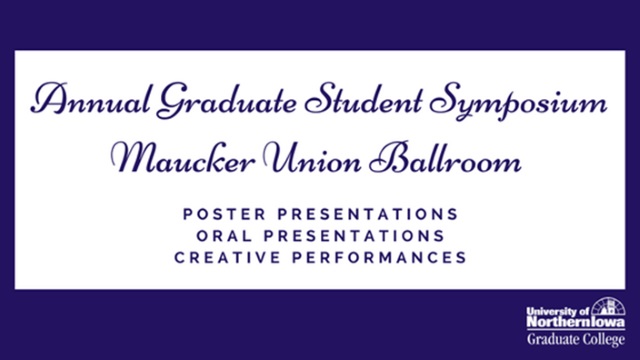
Complete Schedule
Presentation Type
Open Access Poster Presentation
Keywords
Microaggressions; Party affiliation--Psychological aspects;
Abstract
Microaggressions are subtle forms of discriminatory behavior. Women are more likely than men to perceive gender microaggressions (Basford, Offermann, & Behrend, 2014), and political orientation can affect perceptions of microaggressions (Harper, 2018). In this study, we hypothesized that politically liberal women would perceive discriminatory behavior and anticipate negative outcomes for another woman more than politically conservative women, especially when microaggressions were subtler. In a pre-registered experiment, 248 female participants read one of four workplace interaction vignettes depicting microassault, microinsult, microinvalidation, or no microaggression (Basford et al., 2014). Participants rated whether the interaction was discriminatory and if it would result in negative work outcomes for the woman depicted, then completed measures of their personal experiences and characteristics, including four items assessing how liberal/conservative they were (Inbar & Lammers, 2012). As predicted, political orientation and condition affected perceptions of discrimination and predictions of negative work outcomes, though the interaction was not significant. Overall, liberals were more likely than conservatives to perceive microaggressions and to predict negative work outcomes for the woman depicted. However, if the depicted microaggression was subtler, both liberals and conservatives perceived less discrimination and predicted less negative work outcomes. These results suggest that conservative women may discount sexism, rather than liberal women overestimating sexism. Political orientation may decrease perceptions of discrimination against one’s own group for conservatives and liberals in certain situations (cf., Harper, 2018). These findings may aid in understanding political issues such as reactions to Kavanaugh’s hearing.
Start Date
3-4-2019 11:00 AM
End Date
3-4-2019 1:00 PM
Faculty Advisor
Helen Harton
Department
Department of Psychology
Copyright
©2019 Christina Fortuna, Jordan Newburg\ &, Bre Kirpes
File Format
application/pdf
Embargo Date
4-23-2020
Perceptions of Microaggressions and Consequences Differ by Political Orientation
Microaggressions are subtle forms of discriminatory behavior. Women are more likely than men to perceive gender microaggressions (Basford, Offermann, & Behrend, 2014), and political orientation can affect perceptions of microaggressions (Harper, 2018). In this study, we hypothesized that politically liberal women would perceive discriminatory behavior and anticipate negative outcomes for another woman more than politically conservative women, especially when microaggressions were subtler. In a pre-registered experiment, 248 female participants read one of four workplace interaction vignettes depicting microassault, microinsult, microinvalidation, or no microaggression (Basford et al., 2014). Participants rated whether the interaction was discriminatory and if it would result in negative work outcomes for the woman depicted, then completed measures of their personal experiences and characteristics, including four items assessing how liberal/conservative they were (Inbar & Lammers, 2012). As predicted, political orientation and condition affected perceptions of discrimination and predictions of negative work outcomes, though the interaction was not significant. Overall, liberals were more likely than conservatives to perceive microaggressions and to predict negative work outcomes for the woman depicted. However, if the depicted microaggression was subtler, both liberals and conservatives perceived less discrimination and predicted less negative work outcomes. These results suggest that conservative women may discount sexism, rather than liberal women overestimating sexism. Political orientation may decrease perceptions of discrimination against one’s own group for conservatives and liberals in certain situations (cf., Harper, 2018). These findings may aid in understanding political issues such as reactions to Kavanaugh’s hearing.


